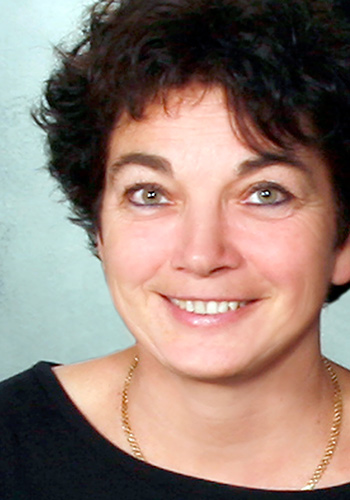Borderline personality disorder: yes, it can be treated
Q&A WITH OUR EXPERTS
The McGill University Health Centre (MUHC) will host the 14th Congress of the International Society for the Study of Personality Disorders the largest international conference on personality disorders from October 13 to 16 in Montreal. This year, the congress will generate much discussion about borderline personality disorder (BPD).

Lise Laporte, Psychologist, Research Director of the Personality Disorders Program, MUHC
We met with psychologist Lise Laporte, research director of the Personality Disorders Program of the MUHC and chair of the Organizing Committee of the 14th Congress of the ISSPD, to ask her a few questions:
What is BPD?
It is a severe mental health disorder that affects adults and adolescents, men and women. Very impulsive and emotional, those who suffer from it live in great distress. They have many interpersonal difficulties, can have severe mood swings and adopt self-destructive behaviours, such as substance abuse. Alarmingly, 10 per cent of them eventually commit suicide.
However, behind these traits you often find engaging people with great qualities and skills. Sometimes they can have a great sense of humour and can detect vulnerabilities and sensitivities in others that most people don’t notice. They are passionate and creative, artistic and curious. BPD is not just the caricature we see in the movies.
Who is attending the congress?
All of the big names in the field from around the world will be there. Many Quebec practitioners will be taking part, including psychiatrists, psychologists, social workers and psycho-educators. We are also pleased to be having about 100 students at the event.
A full day is devoted to families, who are invited to learn how to live better with people who have the disorder and how to help them. We are very proud that the Mental Health Mission of the MUHC helped to reduce the registration cost for families.
Why is it so important to talk about this?
It is important because of the distress caused by this disorder for patients and their loved ones, and because of the resources it monopolizes in the healthcare system (see sidebar Numbers speak for themselves). Often the people intervening don’t have the knowledge, the skills or the attitudes needed to help these patients and their families.
Numbers speak for themselves
- 12 to 13 per cent of the population suffers from a personality disorder.
- Approximately 1 per cent of the population has Borderline Personality Disorder (BPD). In the hospital setting, close to 30 per cent of the people admitted to psychiatry has this diagnostic, as well as 10 to 15 per cent of those who are seen in the E.D. and outpatient clinics.
- In Quebec, 20 per cent of mothers of children in youth centres have BPD
There is also a stigma that must be eliminated, among the public and within the clinical community. Ten years ago, these patients were often seen as lost causes, but there have been great advances in research since then and a clear improvement in treatments. We hope that through the congress, many people will hear the message that we can really help individuals with a personality disorder.
What expertise do we have at the MUHC?
The MUHC has two well-established clinics. Open for 15 years, our short-term clinic manages to provide concrete help to patients in as little as 12 weeks. Our second clinic offers long-term therapies that can last up to two years, depending on the needs of the person. We also offer a unique outpatient consultation service at the Batshaw Youth and Family Centres.
In addition, our team is very active in research and teaching. Finally, we are fortunate to be working with Dr. Joel Paris, who founded the MUHC Personality Disorders Program and chairs the scientific committee of the congress. He is an internationally recognized expert.
Do you have a message of hope?
There are many services in Montreal for people suffering from BPD and their families. It’s important to look for help because there are ways to end the distress.
For more information about the congress, please visit: isspd2015.org